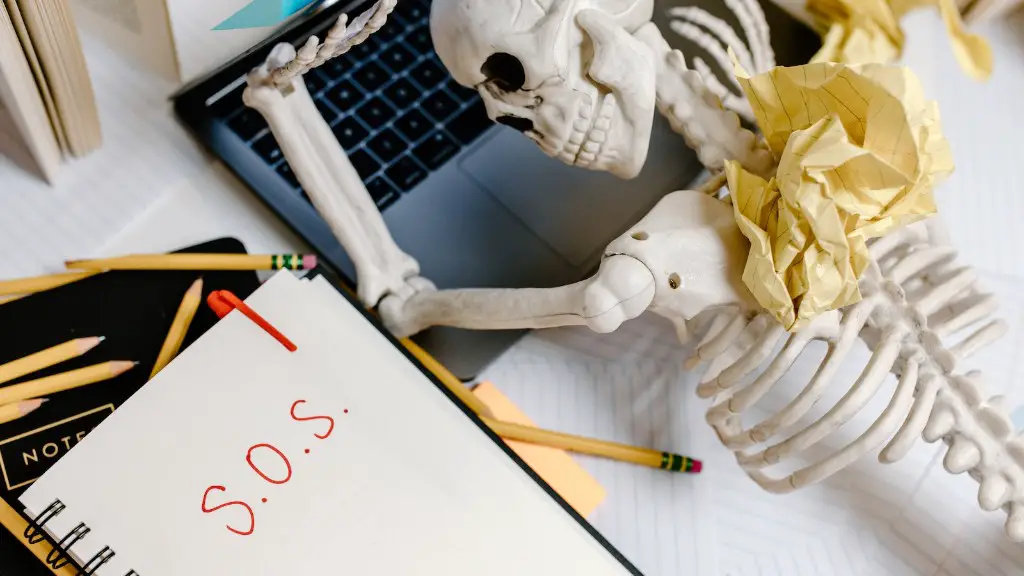It’s no secret that stress can wreak havoc on our bodies, but did you know that it can also cause a skipped period? That’s right, stress can interfere with a woman’s menstrual cycle, causing her to miss a period or have irregular bleeding.
So how does stress cause a skipped period? Well, when we’re stressed, our bodies release the hormone cortisol. This hormone can suppress the production of other hormones, including those that control our menstrual cycle. So when we’re stressed, our periods may become irregular or even stop altogether.
If you’re dealing with stress, there are a few things you can do to help get your period back on track. First, try to relax and manage your stress as best you can. This may mean taking up yoga or meditation, or simply taking some time for yourself each day to unwind. Secondly, eat a healthy diet and exercise regularly, as these can help to balance hormones and reduce stress. Finally, if your period still hasn’t returned after a few months, you may want to see your doctor to rule out any other potential causes.
Stress can cause a skipped period by disrupting the hormone levels in the body. When the body is under stress, it produces the hormone cortisol. Cortisol can interfere with the production of other hormones, like estrogen, which can cause the body to skip a period.
How long can stress delay your period?
If you’re experiencing acute stress, your period may only be a few days late. However, some people who experience severe chronic stress can go months without getting a period. If you’re concerned about your missed period, talk to your doctor.
If you’re constantly stressed out, you may be more susceptible to problematic periods. Lighter stress may have lesser impacts, and heavy stress may have more dramatic impacts that last longer,” says Dr Kollikonda. “The higher your cortisol levels, the more likely you are to have missing or irregular periods.”
What happens when you miss your period because of stress
If you’re stressed, your menstrual cycle can become longer or shorter, your periods may stop altogether, or they might become more painful. Try to avoid becoming stressed by making sure you have time to relax. Regular exercise, such as running, swimming and yoga, can help you relax. Breathing exercises can also help.
Stress can have a major impact on your menstrual cycle. When you’re stressed, your body goes into fight or flight mode, which can affect your hormones and cause your period to be late or even stop completely for several months. If you’re experiencing stress-related changes to your menstrual cycle, it’s important to talk to your doctor so they can help you manage your stress and keep your cycle on track.
Why is my period late if I’m not pregnant or stressed?
If you’re experiencing irregular periods, it’s important to talk to your doctor to rule out any underlying medical conditions. Common causes of irregular periods include hormonal imbalances, stress, weight gain or loss, and certain medications. However, it’s also normal for your period to be irregular when it first begins (menarche) or when the menopause transition starts. If you’re concerned about your irregular periods, be sure to talk to your doctor.
Stress can actually cause your period to be late or delayed when your body is so freaked out by keeping you calm and what’s happening around you, that makes you anxious, that your body’s hormones hold off on critical parts of your menstrual cycle, like ovulation.
What does a stress period look like?
High stress levels can be associated with various menstrual changes and symptoms, including pain, premenstrual symptoms, and irregularity. Stress can contribute to the development of conditions like endometriosis and PMS, and can also worsen existing conditions. If you’re experiencing any changes in your menstrual cycle or symptoms, it’s important to speak to your doctor to rule out any underlying medical conditions and to discuss ways to manage your stress.
There are a few things you can do to help manage stress and promote relaxation:
1. Use a warm compress or take a warm bath. This can help relax tight muscles and relieve emotional stress.
2. Reduce your exercise if you’re an athlete.
3. Use birth control to help regulate your period.
4. Keep a journal to track your stress levels and see how different activities affect you.
How late is normal for a period
The menstrual cycle is a natural process that occurs in women of childbearing age. The cycle is counted from the first day of one period to the first day of the next. Menstrual flow might occur every 21 to 35 days and last two to seven days. For the first few years after menstruation begins, long cycles are common.
Lack of sleep can cause hormonal changes that can affect your menstrual cycle. Melatonin, a hormone that helps regulate the start of your period and the length of your cycle, is particularly affected by sleep patterns. Changes in melatonin levels can therefore affect your cycle.
Why I got spotting instead of my period?
Spotting before your period is generally harmless. It may be an early sign of pregnancy or due to hormonal changes, implantation bleeding, polyps, or another health condition. If you’re concerned about spotting before your period, talk to your doctor.
If you’re on birth control, you can both induce your period and skip it by switching to your placebo pills (or sugar pills) sooner.
Which medicine induces periods immediately
Medroxyprogesterone is a medication that can be used to bring on a normal menstrual cycle in women who have not menstruated for at least 6 months. This medication can be used in women who are not pregnant or undergoing menopause. This medication works by replacing the hormone progesterone, which is essential for a normal menstrual cycle.
There are a few different things that can happen during your period. You may have cramps (pain in your lower belly or lower back), bloating (when your belly feels puffy), breakouts (getting pimples), sore breasts, feeling tired, or mood swings (when your emotions change quickly or you feel sad, angry, or anxious).
There are a few things that you can do to help ease these symptoms. For cramps, you can take over-the-counter medication such as ibuprofen. You can also put a heating pad on your stomach or lower back. For bloating, you can try not eating salty foods and carbonated beverages. You can also take an over-the-counter medication such as simethicone. For breakouts, you can use a spot treatment with benzoyl peroxide or salicylic acid. For sore breasts, you can wear a supportive bra. You can also put a heating pad on your breasts. For feeling tired, you can try to get a good night’s sleep. You can also drink plenty of fluids and eat healthy foods. For mood swings, you can try to relax and take some time for yourself. You can also talk to a friend or family member about
When should I worry about missed period?
If you have not had a period in three months and your periods were regularly before, you should consult a doctor. If you have not had a period in 6-9 months but your periods have always been infrequent, you should consult a doctor. You could be pregnant.
If you’re experiencing cramps with no period, it’s important to seek medical attention. Your doctor will want to know if your pain is sudden or ongoing, and will likely perform a physical exam to rule out other potential causes of your pain. If you have sudden, severe belly pain, it’s important to seek medical help right away.
Conclusion
No, stress cannot cause a skipped period.
Stress can cause a skipped period because it can interfere with the body’s hormones. When the body is stressed, it produces a hormone called cortisol. cortisol can interfere with the production of other hormones, including the ones that control the menstrual cycle.





